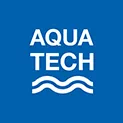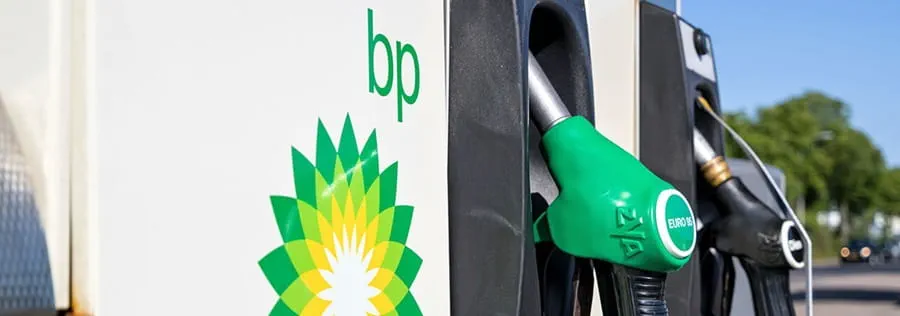Mixing oil and water
Water use by the oil and gas production industry is coming in for increased scrutiny as the sector looks to burnish its environmental credentials.
While the bulk of the major players have announced significant measures to reduce the carbon intensity of operations or promote and develop renewable energy, water use has received less focus.
This is significant given that not only is oil and gas production a water intensive sector, many of the world’s most productive areas in terms of fossil fuel production are in some of the driest and most water-stressed regions, such as the Middle East.
Switching up to sustainability
The latest oil major to tout its clean and sustainable ambitions is BP, which recently revealed plans to become a carbon net zero company.
Plans include delivering a 10-fold increase in its low-carbon investment by 2030 to around $5 billion a year.
To achieve this BP says that emissions associated with carbon in upstream oil and gas production will be 35-40 per cent lower by 2030 while the carbon intensity of the products it sells will also be more than 15 per cent lower by then too.
In addition, by 2030, BP aims to have developed around 50 GW of net renewable generating capacity – a 20-fold increase from 2019.
"The latest oil major to tout its clean and sustainable ambitions is BP, which recently revealed plans to become a carbon net zero company."
Cutting carbon, but increasing water use
BP notes that under its latest initiatives its upstream oil and gas production is expected to fall from 2.6 million barrels of oil equivalent a day (mmboe/d) in 2019 to around 1.5 mmboe/d and refining throughput is expected to fall from 1.7 million barrels a day (mmb/d) in 2019 to around 1.2mmb/d by 2025.
The significance of water in the industry, for example in shale gas fracking, suggests that substantially increasing investment in non-oil and gas resources and reducing fossil fuels production will likely have an impact on water consumption.
Water use is also coming increasingly into focus a key measure of sustainability. For instance, in its 2019 Sustainability Report BP notes: “We actively manage and monitor our water use and take steps to use it more sparingly and sustainably. We actively manage our freshwater demands in areas of stress and scarcity.”
The company highlights action at its Texas City Chemicals facility, located in an area of medium to high water stress, where BP says that through modelling and monitoring it has been able to lower the demand for fresh water by over 270,000 m3/year.
Nonetheless, in 2019 there was a 4 per cent rise in freshwater withdrawals and a 3 per cent rise in freshwater consumption. BP says this was largely due to increased production.
Water use intensity
However, BP’s own figures reveal that not only is the company’s fresh water extraction increasing, water use intensity - the amount of water consumed per tonne of production - remained unchanged between 2016 and 2019.
Furthermore, the quality of discharges to freshwater has fallen, for example the chemical oxygen demand of discharged process water has increased steadily over the last three years even while oil discharges to the oceans has fallen.
"BP’s own figures reveal that not only is the company’s fresh water extraction increasing, water use intensity remained unchanged between 2016 and 2019."
This comes while the company acknowledges that in 2019 four of its 26 major operating sites were located in regions with high or extremely high water stress, with another four located in areas of medium to high water stress.
Cutting water use through local initiatives
Royal Dutch Shell also flags its activity on sustainability. Its 2019 Sustainability report notes that water is managed at a local level and any targets to reduce water use are not shared.
“We design and operate our facilities to help reduce fresh-water use and tailor our use of fresh water to local conditions. We carefully manage our water use and discharges at these facilities. We are taking steps to manage our use of water responsibly – including looking for beneficial ways to recycle and reuse this valuable resource,” the report states.
Furthermore, the company does note that in 2019 its intake of fresh water was 192 million cubic metres, compared with 199 million cubic metres in 2018.
Around 90 per cent of the fresh water intake was used for refining oil and chemical products with the balance mainly being consumed in oil and gas production. Shell highlights an initiative in
Canada where the company has partnered with the City of Dawson Creek to open a water treatment plant.
This facility treats municipal wastewater which would otherwise be discharged to a local river, and instead uses that for its local Groundbirch natural gas venture.
Groundbirch already recycles approximately 98 per cent of its water and most of the balance is now taken from the water treatment plant.
Moving beyond petroleum
Speaking to Aquatech Online, Ken Cronin, chief executive of the United Kingdom Onshore Oil and Gas (UKOOG) trade group, said: “We recognised a number of years ago, in conversation with the water industry, that we would need to work quite closely together to look at how we use water and how we can reduce that and also how the water industry interacts with the oil and gas industry.”
He added: “Water conservation has been embedded our industry for quite some time, we’re always asking questions about how we can reduce our impact on the environment as much as possible and water is one of those areas.”
It is clear that for oil companies to address their environmental impact, carbon emissions must be top of the priority list.
Nonetheless, water use is also a critical measure of sustainability and should be given more emphasis and investment if oil majors are to convincingly claim they are moving beyond petroleum to become sustainable businesses.







